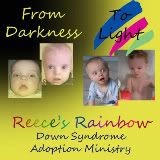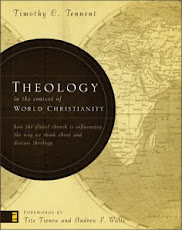Book Review: VINTAGE CHURCH
I just finished Mark Driscoll’s newest book, VINTAGE CHURH. It was an enjoyable and beneficial read. I would recommend it to any Christian. I would also recommend it to any non-Christian who is simply curious about this well-known pastor or the explosive growth at Mars Hill Church, in Seattle.
The greatest strength of this book is Driscoll’s transparency regarding the practices of Mars Hill Church. He clearly lays out the practices of the church and the reasons for those practices. This aspect of the book will prove to be extremely valuable to church planters and young leaders. Even if you don’t agree with every structure or practice at Mars Hill, you will at least be forced to think through all of these issues. Some of the issues that I found most useful were his section on the process of appointing elders, women in ministry, multi-site practices, the Lord’s Supper, and baptism.
Another strength of this book is learning from Driscoll’s experience in planting and growing churches over the past twelve years. He planted Mars Hill with a few other people and grew it into one of the largest churches in America. This knowledge combined with his experience as the founder of the Acts 29 church planting network amount to a lot of valuable advice for pastors and planters. He knows what it is like to lead a church at every stage of a church’s life-cycle.
As you can tell, I learned a lot from this book; however, do not mistake this book for a full-blown ecclesiology. Driscoll hits most of the high points, but really camps out in the areas that he has the most to say about; this is obvious by the fact that the chapter discussing “What is the Church?” is the same length as the chapter discussing multi-site churches.
Overall, any pastor, elder, planter, or church member will benefit from this collection of Driscoll’s beliefs, practices, and experiences. Also, this book does contain much of the vintage Driscoll humor, but nothing that crosses the line into vulgar or inappropriate territory. I know this is a concern for many people, but I hope this book and his last effort, Death by Love, represent a maturing Mark Driscoll. I welcome more of his insightful experience.
Here are a few of my favorite quotes:
Jesus' ministry included feeding the hungry, healing the sick, loving the outcast, and befriending the sinner. But we must never forget that Jesus's ministry began with preaching. (88)For us as missionaries in culture, the tip of the spear for our war against Satan, sin, and death is the sermon, if rightly preached with authority for the purpose of gathering God's people for instruction before sending them out on mission with passion. (101)Pursuing potential rather than calling gets a church off mission... Bluntly stated, most churches are doing too much and doing it poorly. To get and stay unified, church leaders must focus their resources (e.g., people, dollars, facilities, emotion, technology) on accomplishing a few things [we must remain gospel-centered] if they hope to accomplish anything. (146-47)In the days of Nehemiah, God's people rebuilt the wall encircling their city with a trowel in one hand and a sword in another. With the trowel they built, and with the sword they defended [to paraphrase his next few sentences, this means that today in our time, we must both build the church and defend it]... In keeping with this analogy, formative discipline [teaching and training] is trowel work and resotrative discipline [church discipline, which means correction and casting out wolves] is sword work. (171-72)Because we have limited resources (time, energy, money) we must allocate those things to what we consider most important or glorious to us and in so doing make sacrifices for our functional god. Whatever we hold in the position of highest glory is by definition our god(s). (204) [The goal is to have Christ in this position][One problem according to Driscoll is that many churches have] slipped into an attritional ministry philosophy focused almost solely on bringing people into church buildings and events. Such churches lacked a missional philosphy focused on sending Christians out of the church into the world to evangelize and disciple people. Subsequently, the Western church had, sadly, become overly attached to and defined by buildings, programs, staff, services, and institutions that only strategize ways to do "attractional" ministry. To correct this problem, the term missional was adopted to emphasize that the church exists to go into the cultures and nations of the earth and live sacrificially for the good of others. (218)[Regarding large or multi-campus churches] If some churches with good names in their community can multiply and use their good name to compel more people to worship Jesus, then even if you do not consider that ideal, it is better than unknown, empty churches, which are so common. (260)To begin with, before worrying about how to distribute gospel content, you must have good content and lots of it. Just as it makes no sense for a horrible band to play on an expensive sound system because it only amplifies the awfulness, so increasing the channels for content distribution is in vain if the content (e.g., preaching, teaching, worship music) is not biblical and well done. (273)




















Post a Comment